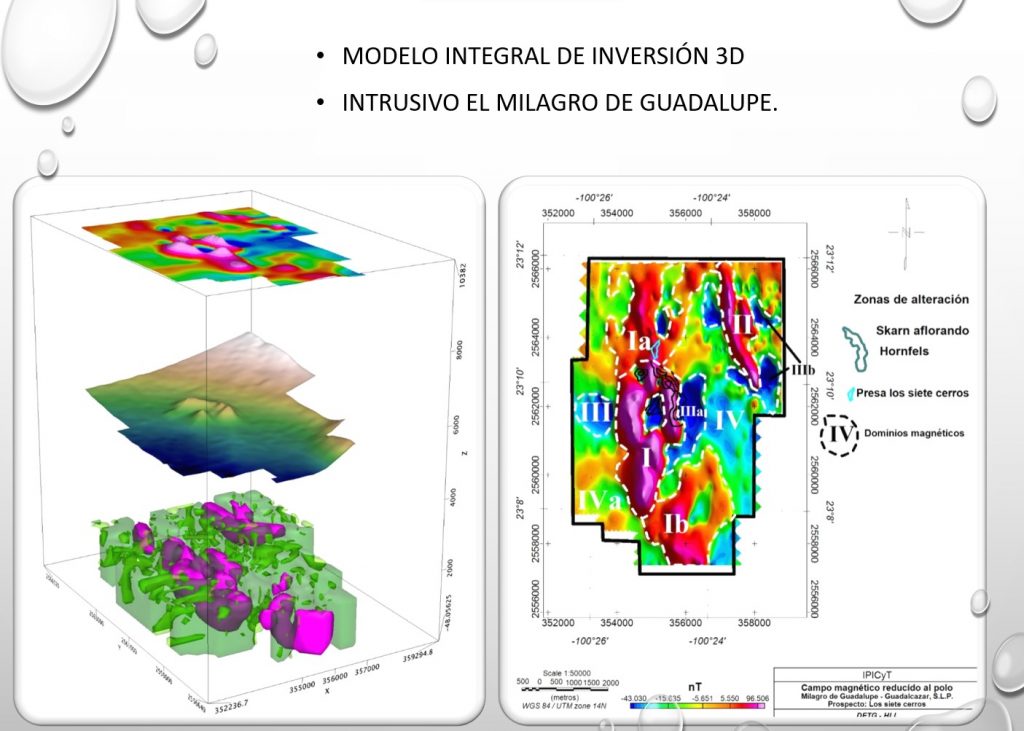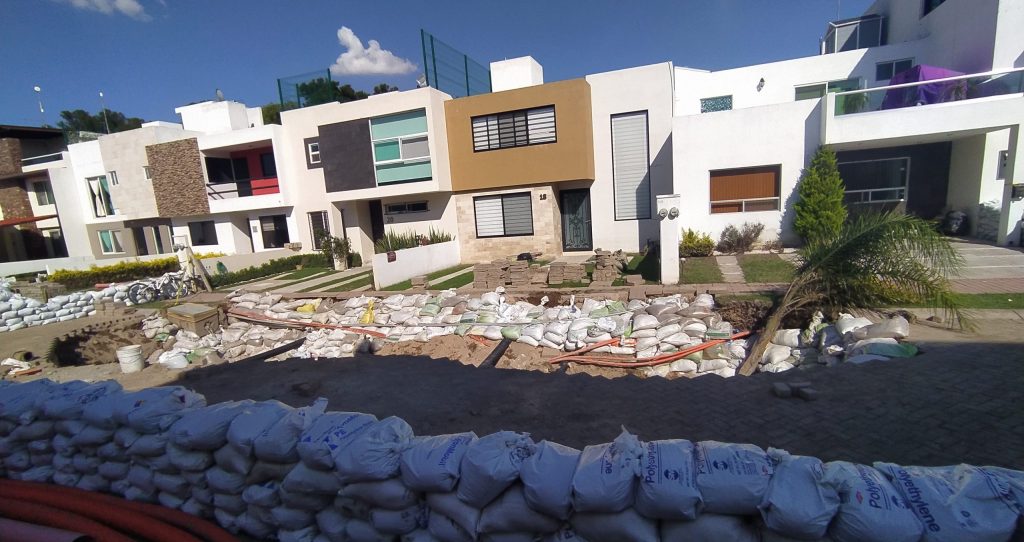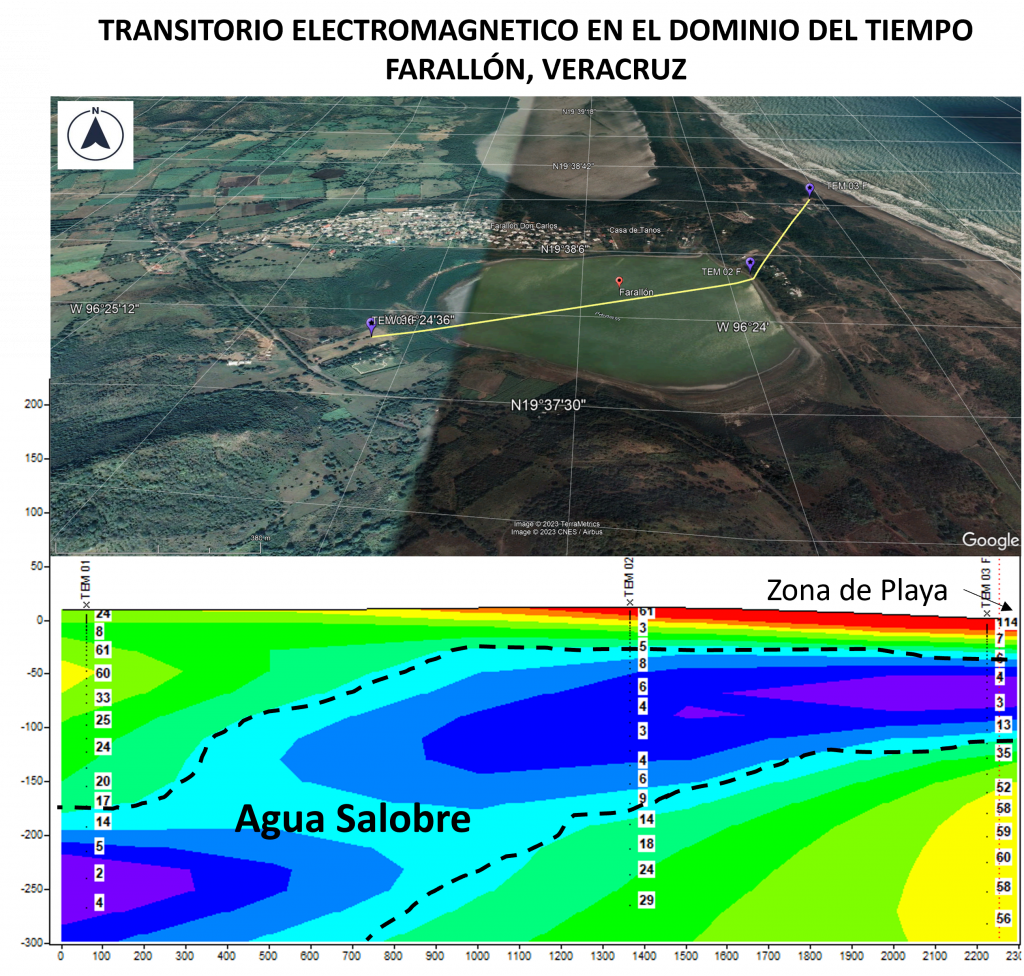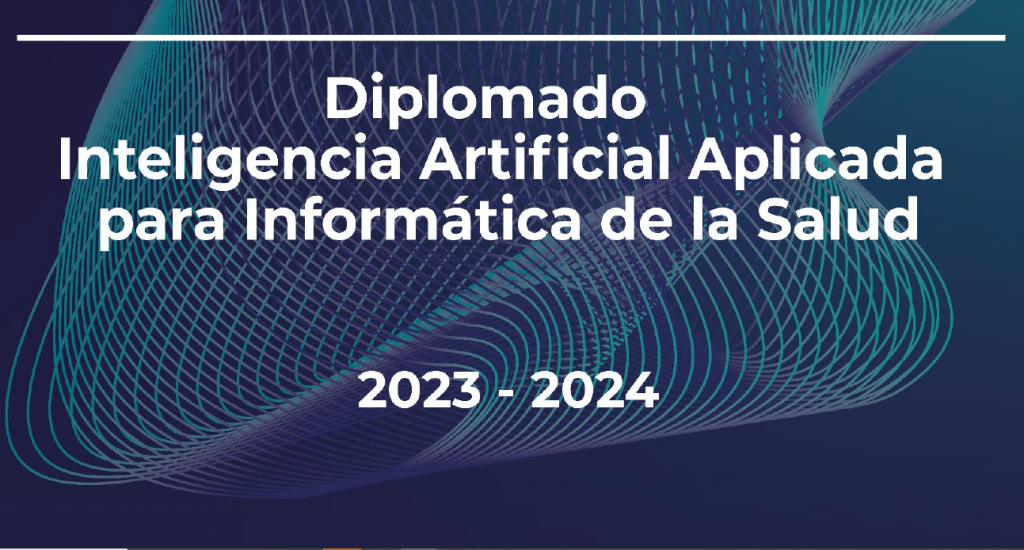Geophysical exploration of mineral deposits

Geophysics plays an essential role in the exploration and characterization of mineral deposits, providing key information on geological structure, mineral distribution and subsurface properties. This information is fundamental for decision making in the mining industry and contributes to a more efficient and sustainable exploitation of mineral resources.
Geophysical studies for the evaluation of geological hazards in urban areas.

In order to obtain construction permits in the state of San Luis Potosi, it is common to be required to perform geological risk studies that include geophysical methods. These studies are fundamental to evaluate and mitigate possible geologic risks associated with the construction site.
Hydrogeological Projects: Identification of Areas for Well Drilling.

Hydrogeological studies aim to identify optimal areas for water well drilling. Through a combination of geophysical techniques and geological analysis, the most suitable location for sustainable groundwater extraction will be determined. The study will focus on assessing the availability, quality and productivity of groundwater in the areas studied.
Diploma in Artificial Intelligence for Health Informatics

To train specialists in the theoretical and practical aspects of data analysis and data science, capable of collecting, cleaning, analyzing and distilling the information contained in the databases of health institutions.


